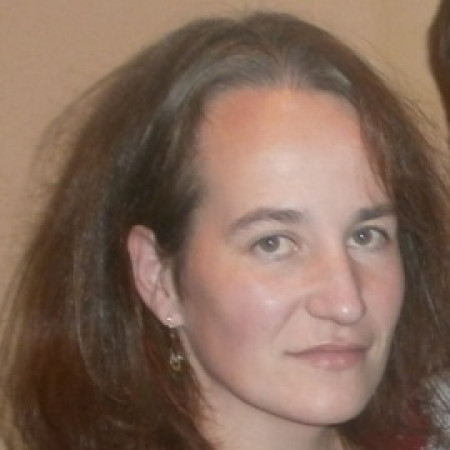
Academic degree, university post: PhD, associate professor
Date, place of birth: 1976, Ajka
Studies:
2010: ELTE, Faculty of Education and Psychology – Consultant specialist psychologist, family and relationship consultancy specialization
2008: Semmelweis University – PhD
2005: ELTE, Faculty of Education and Psychology – Psychologist
1999: ELTE, Faculty of Science – Biology-chemistry teacher
Teaching activities:
2015- : Pető András College – psychology, personality psychology, career socialization, developmental psychology education in conductor training
2004-2015: Budapest Business School – psychology, social psychology, developmental psychology, teaching communication, career structuring and conflict management training courses in core training and teacher masters training
2000-2007: Chemistry and biology at Semmelweis University and the Piarist Grammar School, Budapest
Publications connected with subjects taught:
J. Gombás: Hátrányos helyzetű diákok – hátrányos helyzetű pedagógusok? /Disadvantaged students – disadvantaged teachers?/ In: R. Ősz (editor): Empirikus kutatások a szakképzésben és a felsőoktatás-pedagógiában. Kutatási Füzetek XII. DSGI Kiadó, 2014. pp. 67-85.
J. Gombás: Personality Traits of Students of Budapest Business School Before and After the Economic Crisis. Practice and Theory in Systems of Education 2014.9 (2): 111-121.
J. Gombás: A zenei tevékenységek pszichológiai hatásai /Psychological impacts of music activities/. In: J. Torgyik (editor): Sokszínű Pedagógiai Kultúra. Study paper. Komarno, International Research Institute s.r.o., 2014. pp. 239-244.
J. Gombás: A korai hatások szerepe a problémás személyiségfejlődésben /Role of early influences in problematic personality development/. In: P. Majoros (editor): BGF Tudományos Évkönyv 2011: Útkeresés és növekedés. Budapest, BGF, 2012. pp. 493-503.
J. Gombás: A gazdasági válság pszichológiai vonatkozásai /Psychological implications of the economic crisis/. In: P. Majoros (editor): BGF Tudományos Évkönyv 2010: Merre tovább? Gazdaság és társadalom, realitás és esély. Budapest, BGF, 2011. pp. 469-482.
J. Gombás: The necessity and possibilities of psychological counselling in higher education. In: Majoros, P. Zimler, T. (editors): Proceedings of Budapest Business School 2010. Budapest, BGF, 2010. p. 24-36.
J. Gombás: A humanisztikus lélektan lehetőségei az oktatásban és a gazdasági gondolkodásban /Opportunities for humanistic psychology in education and economic rationale/. In: P. Majoros (editor): BGF Tudományos Évkönyv 2008: Kultúraközi párbeszéd az üzleti világban. Budapest, BGF, 2009. pp. 259-269.
T. Karáth and J. Gombás: A reneszánsz udvari zenész felemelkedése és tündöklése /The rise and splendour of the Renaissance court musician/. Agora: A BGF KVIFK kulturális-tudományos folyóirata 2009.3: 91-102.
J. Gombás: Zenei preferenciák és ezek gyakorlati jelentősége /Musical preferences and their practical significance/. In: P. Majoros (editor): BGF Tudományos Évkönyv 2005: A prioritások és a konvergencia kölcsönhatása a magyar gazdaságban. BGF, Budapest, 2006. pp. 349-357.
J. Gombás and L. Stachó: Matematikai és zenei képességek vizsgálata 10-14 éves gyerekeknél /Examination of the mathematical and musical skills of 10-14-year-old children/. Tudomány és Lélek (OTDK special edition) 2003 (6): 50–65.
Other:
My musical training did not lead to a career in music but in addition to my other studies I always attended violin classes, initially as a student of the Hermann László Music School and Secondary School of Music (Székesfehérvár), and later as a student of Tamás Keszthelyi. I was a member of the ELTE University Concert Orchestra for 10 years, ending up as first violinist. Together with my fellow university students we founded the Castellano String Quartet. From this moment we have regularly participated in chamber music courses run by members of the Liszt Ferenc Chamber Orchestra, overseen by Mihály Várnagy and Vera Czettner. None of the members of the quartet are professional musicians. We are all active in creative intellectual activities in various areas: we teach, conduct research and work in science organization. In 2010 our ensemble won the Pro Musica Dilecta prize founded by the Liszt Academy, which was presented to us for the ‘passionate cultivation of music’.
Website: www.castellano.hu
Contact: judit.gombas[at]gmail.com


